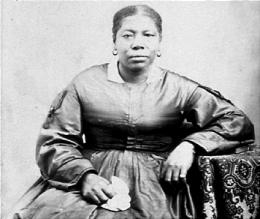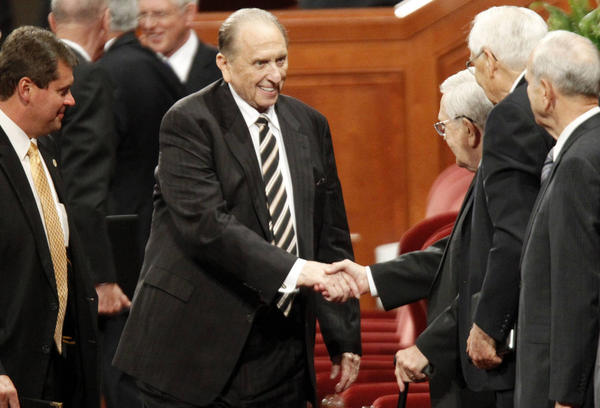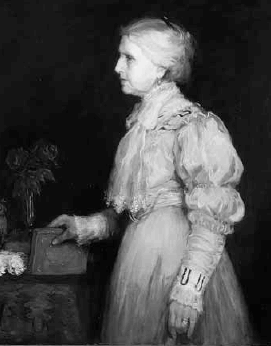Ezra Booth, a former minister, became a member of The Church of Jesus Christ of Latter-day Saints, whose members are often called Mormons, in 1831, when the church was still new. He had seen Joseph Smith heal the arm of a church member, and this was his reason for joining. However, Mormons know miracles don’t really convert people. The miracle must be followed up with appropriate steps to gain a true testimony, including study and prayer. However, Booth did not do this and so he had only the single miracle to bolster his thin faith.
In the early days of the church, adult men, even those married, could be sent out on missions and often did so when they were quite new to the church. This is not the case today, where missionaries must be well-versed in their religion and have strong testimonies. Ezra Booth left on his mission only a few months after joining. This mission demonstrated his lack of true testimony as he faced his first necessity to sacrifice for his faith. He was angry over having to walk to his destination instead of being given transportation, even though the young church had no money for such things and neither did he. He began to feel upset that he didn’t see a continual stream of miracles, not understanding that miracles are miracles precisely because they are rare. Missionary work wasn’t the glamorous task he expected it to be.
As he focused on all the things that were wrong, instead of on what was right or on the privilege of doing God’s work, his attitude descended lower and lower. All he thought about day in and day out was what he didn’t like about his new church. He had misunderstood a prophecy that said the gospel would bloom in Missouri because he thought it had already happened or it would happen while (and maybe because) he was a missionary there. Instead, he found only a small number of converts there. He didn’t think prophets ought to laugh or play with children. Ezra also resented that only the prophet could receive revelation, showing a distinct inability to understand the purpose of a prophet. He began to harbor resentment and anger towards his leaders. He even forgot he was there to share the gospel and instead spent his time attacking it. Naturally, when he returned home, the church had no choice but to excommunicate him. It was clear he lacked a testimony or commitment to the gospel.
Like so many though, he could not simply move on with life. He became obsessed with his former membership and began writing letters to the newspapers, making up new stories and slanting things to justify his decision to stay outside the church rather than to repent and re-convert. Many people find a need to try to justify their choices in this way. Unfortunately, many believed his words, not knowing his background or mindset and it increased the persecution the Mormons faced. Because of his attitude and gossip, many people suffered powerful tragedies.
Joseph Smith was naturally a preferred target, although Ezra’s persecution hurt many others as well. One day, Joseph’s adopted twins had measles and Emma, his wife, had cared for them all day. She eventually went to bed with the little girl and Joseph stayed up with the little boy, who was much sicker. Late into the night, he finally was able to sleep by putting the child with him on the trundle bed near the door. Just as he fell asleep, an angry and very drunk mob broke through the door and dragged Joseph into the streets. They left the door open, causing the baby to catch cold. They choked Joseph, ripped off his clothing, and tried to force hot tar and acid down his throat to kill him. After having second thoughts about actually murdering him, they tarred and feathered him. They also dragged Sidney Rigdon, another church member, out of his home and covered him in tar. The head injuries Rigdon sustained left him delirious for several days. Both men suffered untold pain as the tar was removed from them.
The saddest result of this mob action is that Joseph’s little son died because of the cold he caught when the door was left open. Despite all of this, Joseph forgave them and when they showed up at a sermon soon after, Joseph, still suffering his injuries, did not mention what they had done.
All of this came about because one person had a very bad attitude, choosing to focus on the wrong things, choosing to fill his life with hatred, choosing to spread false stories—and because others chose to believe this gossip instead of finding out for themselves what was true.
There will always be people in the world who will make up stories for their own self-centered purposes, whether it is about religion, politics, social life or any other part of life. However, we are accountable for our choices, including what we do with what others tell us. Ezra Booth would have to answer to God for the lies he told, but each person who acted on those lies without taking the time to find out for himself what was true would also be accountable for those actions. No part of our life is exempt from being accountable for our choices.
H. David Burton, Presiding Bishop of the Church, pointed out that our integrity impacts every other part of our virtue: “It is difficult for a person to display virtuous traits if he or she lacks integrity. Without integrity, honesty is often forgotten. If integrity is absent, civility is impaired. If integrity is not important, spirituality is difficult to maintain.” (See Let Virtue Garnish Your Thoughts by H. David Burton.)
There are many lessons to be drawn from the life of Ezra Booth—the importance of securing a firm testimony of your faith, the dangers of spreading or listening to gossip, the impact of sustained anger, and the power of choice and accountability. It is not likely Ezra Booth set out to cause as much trouble he did. He only wanted to get even with the Mormons for not living up to his unrealistic expectations. However, the choices he made led to widespread persecution, pain and suffering, and even the death of a child. Gossip and spreading false information or information we have not properly verified can have far-reaching consequences we cannot imagine. It is important, as we make our daily choices, to remember we can choose our actions, but not their consequences. Seemingly unimportant actions can lead to a chain of events we can no longer control. Agency is one of the greatest gifts God has given us but we must use it wisely.
The late Terrie Lynn Bittner—beloved wife, mother, grandmother, and friend—was the author of two homeschooling books and numerous articles, including several that appeared in Latter-day Saint magazines. She became a member of the Church at the age of 17 and began sharing her faith online in 1992.





